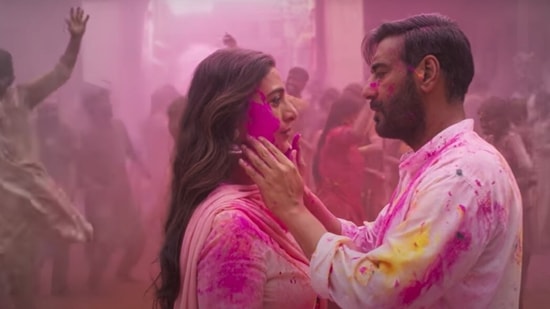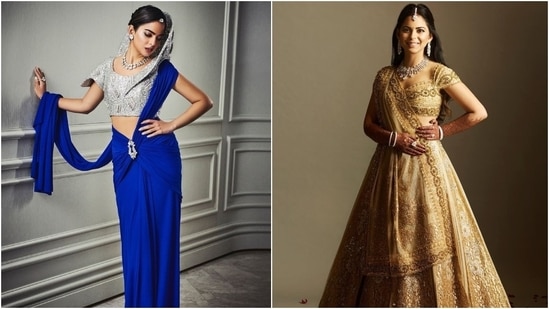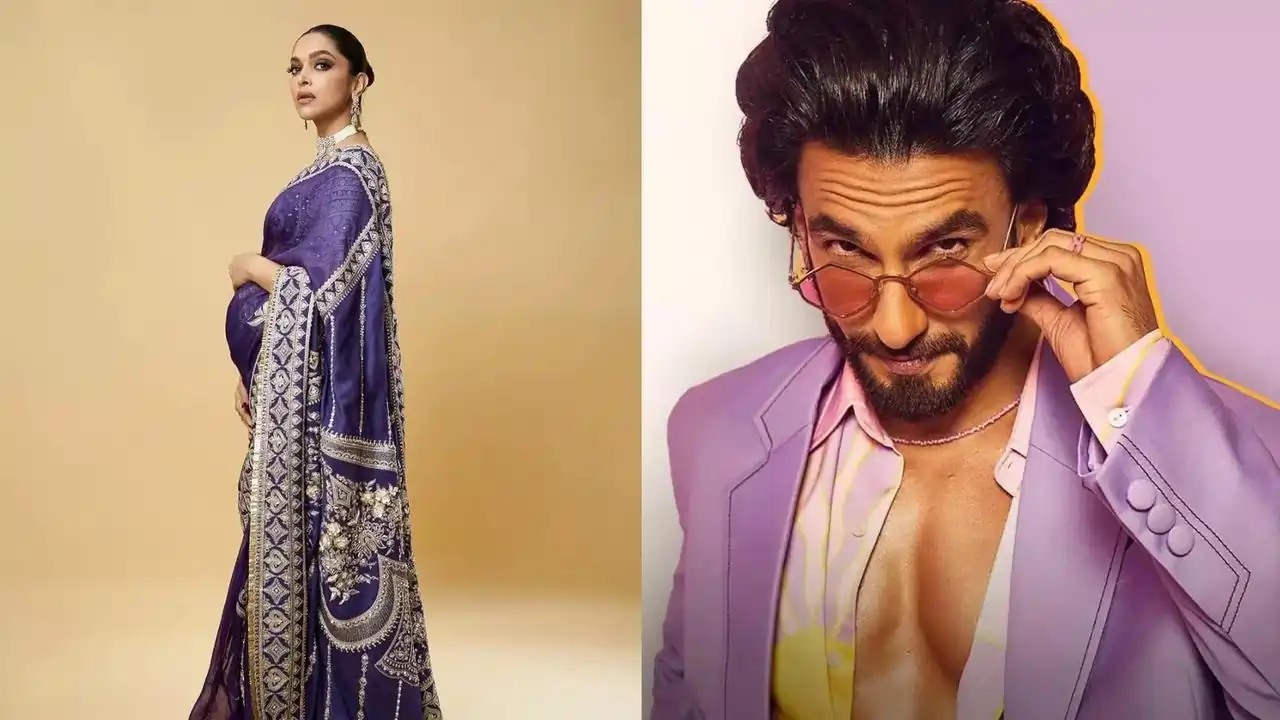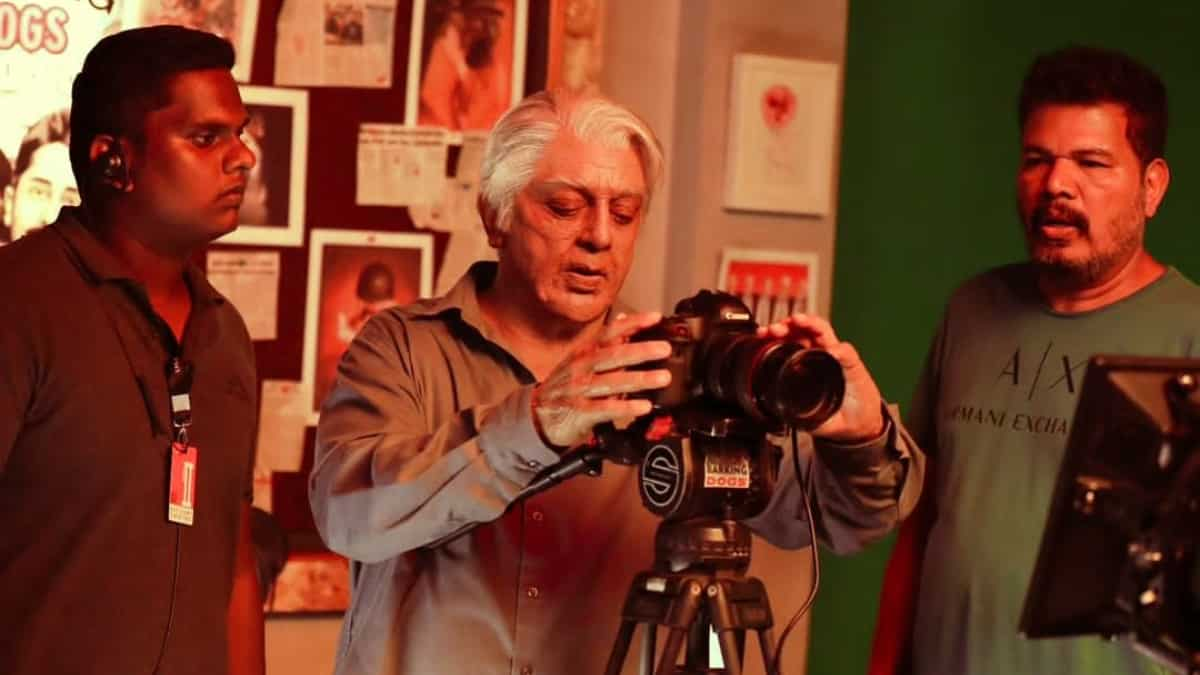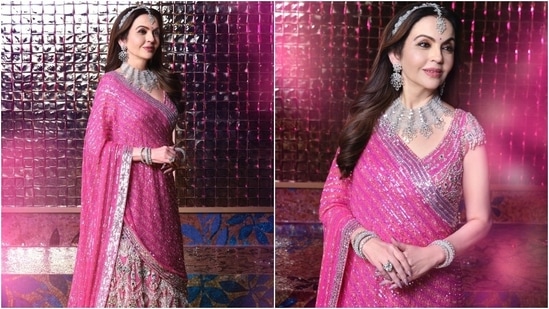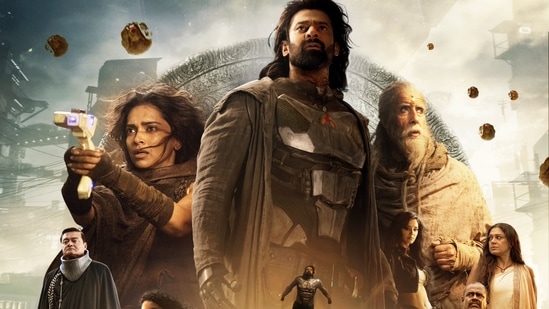
Do Aur Do Pyaar: How Vidya Balan, Pratik Gandhi's film normalises infidelity, without glorifying it
2 months ago | 43 Views
Shirsha Guha Thakurta's romantic comedy Do Aur Do Pyaar turns the concept of infidelity on its head. It starts with Kavya (Vidya Balan) and Vikram (Sendhil Ramamurthy) visiting a sea-facing apartment they're planning to move into, and Ani (Pratik Gandhi) and Nora (Ileana D'Cruz) quarrelling and making up like a married couple. Only to lead to a scene where Ani and Kavya show up as husband and wife – sitting on different ends of a sofa, eating dinner, as the noise of a random wildlife documentary fills the silent void.
This turn of events establishes how love and marriage aren't synonyms. While they may overlap in certain cases, they don't necessarily go hand in hand. One can feel the comfort and intimacy when Kavya and Ani brush their teeth next to each other. But they're never as sprightly or effusive when they're with their partners outside of marriage. It begs the question that Maneesh Sharma posed with Shuddh Desi Romance 10 years ago – is it the institution itself that tightens its noose around love?
Live-in before marriage?
Or is it living together, sharing the space, and coming to terms with each other's daily mundanities that make the love redundant? Zeenat Aman recently set the ball rolling for a discourse around live-in relationships when she encouraged youngsters to cohabit before tying the knot. Her contemporaries like Mumtaz and Saira Banu have distanced themselves from that stance as it's 'against Indian culture'.
So then, is it our culture that puts too much sacred equity on marriage that those participating succumb to performance pressure? In Do Aur Do Pyaar, Kavya marries Ani after fleeing from her conservative Tamil Brahmin home which doesn't approve of her Bengali boyfriend. For her to then admit defeat after a failed marriage isn't an option. Remember when Tabu's character from Kamal Haasan's Chachi 420 (1998) flees with her meat-eating boyfriend – only to return home with her daughter after a failed marriage?

Kavya is a successful dentist and thus, can manage to live a sustainable life without her parents' support. She doesn't want kids either. But for an emancipated woman like her to surrender to her father's ‘I told you so’ is non-negotiable. She'd rather seek love wherever she gets it, even outside of her marriage, as she tells her father in the film. It's in fact this lack of dependence that bothers Ani – he wants to look after his loved ones post his father's death. And so he goes about seeking love from a partner who wants to be pampered, who wants to be taken care of, instead of demanding equality in the relationship.
Does the incentive behind infidelity lie where Sridevi in Gauri Shinde's English Vinglish (2012) diagnosed it to be – she tells the French friend wooing her that when one feels insufficient within, one seeks to fill that void with something one doesn't actually need. Kavya and Ani are surely looking to bridge that gap – but the gap exists not only within them individually – but also in their relationship. Two halves fail to become a whole, not because they're chipping away, but because they refuse to hold on to each other's broken parts. Much like in Karan Johar's 2006 seminal film on infidelity – Kabhi Alvida Naa Kehna.
KANK aftermath
The filmmaker went from “it's all about loving your parents” in Kabhi Khushi Kabhie Gham (2001) to “it's all about cheating on your spouse” in Kabhi Alvida Naa Kehna. But his stance isn't as simplistic here – he laces the inevitability of infidelity with a tinge of remorse and guilt. The closing voiceover states that the lovers who were meant to be are happy to find each other, but they strongly wish that their path to the union hadn't gone through broken hearts and failed marriages. Infidelity isn't censured, but it's narrated as almost a cautionary tale.
When Dev (Shah Rukh Khan) seeks a love who can match his pace (he's forced to quit football after a permanently damaged leg), his wife Rhea (Preity Zinta) doesn't do enough to nurse his bruised male ego. She goes on to become the sole bread-earner and works tirelessly and endlessly as a magazine editor. When she questions her mother-in-law (Kirron Kher) why only the woman must compromise, the latter responds that wives needn't slow down, but must not forget to look behind and wait for their partners.
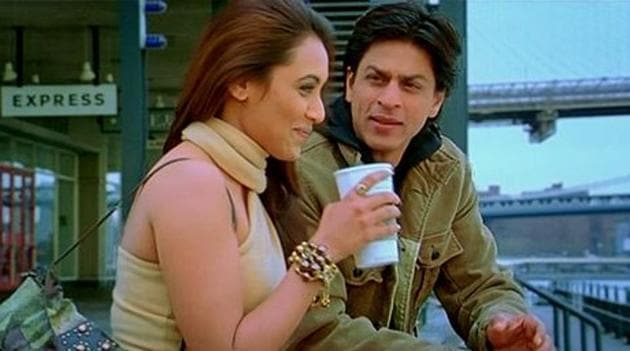
Maya (Rani Mukerji) is a broken woman who doesn't want her husband Rishi (Abhishek Bachchan) to rub sweet nothings on her wounds. She desires a man who can share her suppressed bitterness, someone who can show her the mirror, instead of enveloping her into a bubble of candyfloss romance. He may be an ideal husband, but not for a wife who doesn't subscribe to idealism. So when she cheats on her conventionally flawless husband with a man bitter of his wife's success, the two are immediately labelled as social evils.
In Do Aur Do Pyaar, however, we already know that Kavya and Ani are sleeping outside of marriage and even contemplating divorce. It's when they start reconnecting again that's treated like the anomaly – their extramarital partners start suspecting when they use the very same excuses on them that they reserved for their spouse. When Kavya and Ani return to their guilty pleasures, the red of their romantic rebellion turns into the red of the forbidden fruit. Nora is dressed in a fiery red dress when she confronts Ani, and Vikram invites Kavya into a room bathed in blood-red light when she gets back. Vikram even turns into a stalker and inspects Kavya's apartment premises, hoping to catch her red-handed – with her husband.
Not just a man's world
Subversions like these help shape Do Aur Do Pyaar's non-judgemental lens. The film is also a breath of fresh air because it doesn't treat a woman's infidelity differently from a man's. Of course, the ground reality might be far from that, but it's refreshing to witness this detour, especially in Hindi cinema which has, for so long, marked infidelity as a man's territory. Naseeruddin Shah became the poster boy of infidelity in the 1980s, with films like Shekhar Kapur's Masoom (1983) and Gulzar's Ijaazat (1987). The women who played his wives (Shabana Azmi and Rekha respectively) weren't reduced to victims, but weren't offered to play similar roles in other movies either. Their biggest win was walking out of a marriage when a husband (Kulbhushan Kharbanda) comes seeking forgiveness, as demonstrated by Shabana in Mahesh Bhatt's Arth (1982).

Even years later, when a Shilpa Shetty toys with the idea of love outside marriage throughout Anurag Basu's Life in a… Metro (2007), she leaves her lover (Shiney Ahuja) – and the audience – waiting for an explanation – when she runs back to her husband (Kay Kay Menon) at the end. It did make sense when Aishwarya Rai did that and chose her unusually understanding husband (Ajay Devgn) over her lover (Salman Khan) in Sanjay Leela Bhansali's Hum Dil De Chuke Sanam (1999). But Life in a… Metro seemed more like a copout after the razor-sharp criticism of Kabhi Alvida Naa Kehna.

To take a page out of Vidya Balan's own filmography, in Saket Chaudhary's Shaadi Ke Side Effects (2014), when her character finds out that her husband (Farhan Akhtar) has been cheating on her with a bachelor life as he refuses to grow up and own responsibilities, she tests him by lying that she's going to have a baby with their neighbour. He loses it, takes their daughter away from his wife, and leaves home – only to eventually cool down and give their marriage another chance. Vidya's character is then seen turning the tables and engaging in some well-deserved me-time under the pretence of work, as her husband takes care of their home.

*Spoiler* But in Do Aur Do Pyaar, Vidya Balan pulls off no such coup. Even after separating from her husband, she decides against moving in with her boyfriend. Instead, she goes the Queen (2014) way and embarks on a long, six-month trip to Europe to recalibrate her priorities. At the end, when she shares a light moment with her estranged husband, it ceases to matter whether they're married, cheating, separated or divorced. All that really counts is that they've matured into becoming self-assured, communicative and non-judgemental, just like the film that they inhabit.
Read Also: beauty film launched with formal pooja ceremony
# DoAurDoPyaar # VidyaBalan # Bollywood



